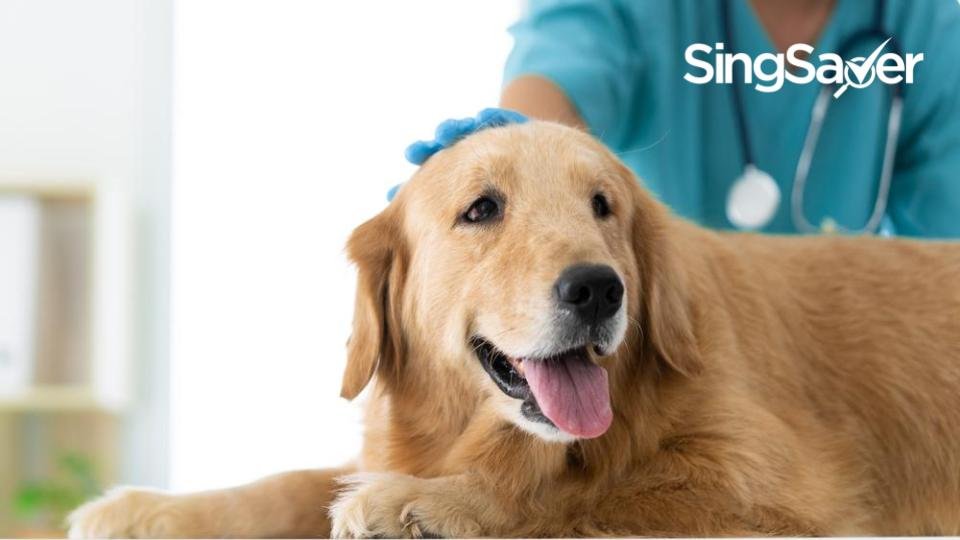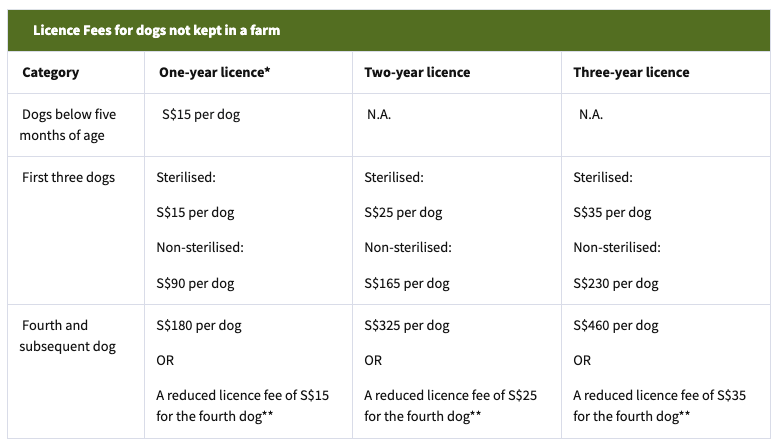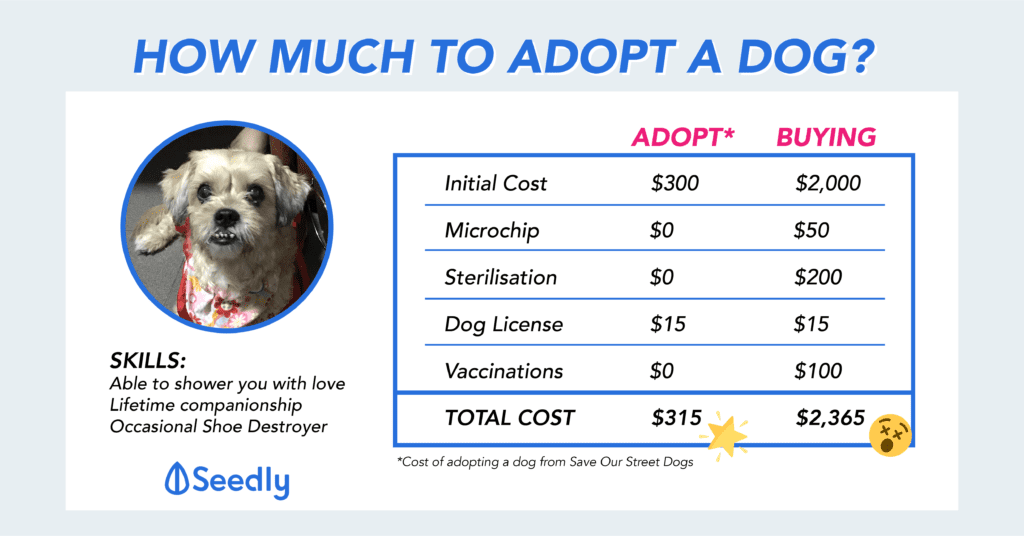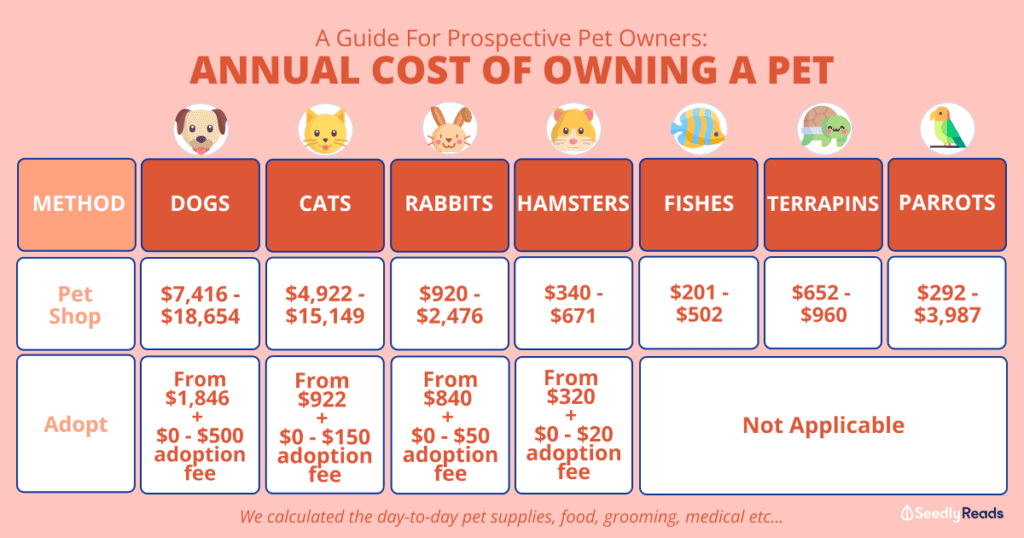Table of Contents
If you are a dog owner in Singapore and considering getting your furry friend sterilized, you might be wondering about the cost. Well, look no further! In this article, we will explore the cost of dog sterilization in Singapore and provide you with the information you need to make an informed decision. From veterinary fees to additional expenses, we’ll cover it all, so you can ensure the well-being of your beloved pet while staying within your budget. Let’s get started!

Overview of Dog Sterilization in Singapore
If you are a dog owner in Singapore, you may have considered sterilizing your furry companion. Dog sterilization is a common practice in Singapore, and it plays a crucial role in responsible pet ownership. This comprehensive article aims to provide you with an in-depth understanding of dog sterilization in Singapore, including its importance, the legislation surrounding it, factors affecting the cost, different methods available, average costs, financial assistance options, selecting the right veterinary clinic, advantages, risks, and frequently asked questions.
Importance of Dog Sterilization
Sterilizing your dog is an essential aspect of responsible pet ownership. Not only does it help control the dog population, but it also has numerous health and behavioral benefits. By spaying or neutering your dog, you can prevent the birth of unwanted litters and reduce the number of stray dogs in Singapore. Additionally, sterilization can help prevent certain diseases and behavioral problems, contributing to a healthier and happier dog.

Legislation Regarding Dog Sterilization
In Singapore, there is no specific legislation mandating dog sterilization. However, the government and the Agri-Food & Veterinary Authority of Singapore (AVA) strongly encourage pet owners to sterilize their dogs. Several public education campaigns have been conducted to raise awareness about the importance of sterilization and responsible pet ownership. It is always advisable to check with your local authorities or AVA for any updated regulations or requirements related to dog sterilization.
Factors Affecting the Cost of Dog Sterilization
The cost of dog sterilization in Singapore can vary depending on several factors. These factors include:
Dog Breed and Size
The breed and size of your dog play a significant role in determining the cost of sterilization. Generally, larger breeds require more anesthesia and surgical time, leading to higher costs compared to smaller breeds. For example, the cost of sterilizing a small dog, such as a Chihuahua, may be lower than that of a larger breed, such as a Labrador Retriever.
Age of the Dog
The age of your dog can also influence the cost of sterilization. It is generally recommended to sterilize dogs at a young age (around 6 months) to prevent certain health issues and unwanted behaviors from developing. However, if you choose to sterilize an older dog, the procedure may be more complex, requiring additional precautions and veterinary expertise, which can result in higher costs.
Location of the Veterinary Clinic
The location of the veterinary clinic can impact the cost of dog sterilization. Veterinary clinics located in prime areas or urban centers often have higher overhead costs, which are reflected in their service fees. On the other hand, clinics in suburban areas or with lower operating expenses may offer comparatively lower costs.
Additional Services and Medications
Apart from the sterilization procedure itself, additional services and medications may be required during or after surgery. These can include pre-operative blood tests, pain medication, post-operative check-ups, and specialized collars or medication to aid in the recovery process. These additional services and medications can contribute to the overall cost of dog sterilization.
Sterilization Method
The method of sterilization chosen can also influence the cost. The most common method is surgical sterilization, which involves spaying (removal of the uterus and ovaries in female dogs) or neutering (removal of the testicles in male dogs). However, non-surgical methods such as chemical sterilization or hormone injections are also available options. Surgical sterilization is generally more expensive than non-surgical methods due to the involved surgical procedure and use of anesthesia.

Different Methods of Dog Sterilization
In Singapore, there are primarily two methods of dog sterilization: surgical sterilization (spay and neuter) and non-surgical sterilization methods.
Surgical Sterilization (Spay and Neuter)
Surgical sterilization, also known as spaying (for females) and neutering (for males), is the most common and widely accepted method of dog sterilization. Spaying involves removing the uterus and ovaries of female dogs, while neutering involves removing the testicles of male dogs. These procedures are performed under general anesthesia by a licensed veterinarian. The surgical method ensures permanent sterilization, preventing the dog from reproducing.
Non-Surgical Sterilization Methods
Non-surgical sterilization methods are relatively new alternatives to traditional surgical procedures. These methods involve chemical sterilization or hormone injections, such as the use of deslorelin implants, which suppress reproductive functions temporarily. However, it is important to note that non-surgical methods may not be as effective or permanent as surgical sterilization.
Average Cost of Dog Sterilization in Singapore
The cost of dog sterilization in Singapore can vary depending on several factors, as discussed earlier. Here is an approximate range of costs for dog sterilization:
Cost for Male Dogs
The cost of neutering a male dog in Singapore can range from around SGD 100 to SGD 500 or more. The specific cost depends on factors such as dog breed, size, age, veterinary clinic location, and additional services required.
Cost for Female Dogs
The cost of spaying a female dog in Singapore can range from around SGD 200 to SGD 800 or more. As with male dogs, the cost varies based on factors such as breed, size, age, veterinary clinic location, and any additional services or medications needed.
Additional Fees and Charges
In addition to the base cost of the sterilization procedure, there may be additional fees and charges. These can include consultation fees, pre-operative blood tests, pain medication, post-operative check-ups, and specialized collars or medications for recovery. It is advisable to check with your chosen veterinary clinic for a detailed breakdown of the costs involved in dog sterilization.

Cost Comparison of Sterilization Methods
When comparing the costs of different sterilization methods, surgical sterilization tends to be more expensive than non-surgical methods. However, it is important to consider the long-term cost-effectiveness and effectiveness of each method.
Surgical Sterilization vs. Non-Surgical Sterilization
Surgical sterilization is generally considered more effective and permanent than non-surgical methods. While non-surgical methods may offer a temporary solution, they may not provide lifelong sterilization. Additionally, surgical sterilization has been extensively studied and proven to have numerous health benefits for dogs, reducing the risk of certain diseases and behavioral problems.
Cost-Effectiveness of Each Method
Although non-surgical methods may have a lower upfront cost, it is essential to consider their long-term cost-effectiveness. Surgical sterilization, despite being more expensive initially, eliminates the need for repeated sterilization procedures or hormone injections, which can add up over time. Therefore, surgical sterilization may ultimately prove to be more cost-effective in the long run.
Financial Assistance and Subsidies for Dog Sterilization
In Singapore, several financial assistance options and subsidies are available to help dog owners with the cost of sterilization.
AVS Sterilization Subsidy
The Agri-Food & Veterinary Authority of Singapore (AVA) offers a sterilization subsidy to encourage responsible pet ownership. This subsidy helps offset the cost of sterilization for Singaporean citizens and Permanent Residents. The amount of subsidy provided may vary, so it is advisable to check with AVA for the most up-to-date information on eligibility and application procedures.
Non-Profit Organizations Providing Financial Aid
There are also non-profit organizations in Singapore that provide financial assistance for dog sterilization. These organizations aim to enhance animal welfare and may offer subsidies or low-cost sterilization programs. Some well-known organizations include the Society for the Prevention of Cruelty to Animals (SPCA) and Action for Singapore Dogs (ASD). It is recommended to research and reach out to such organizations to inquire about their assistance programs.

Choosing the Right Veterinary Clinic
Selecting the right veterinary clinic for your dog’s sterilization procedure is essential to ensure a safe and successful surgery. Here are some considerations to keep in mind:
Considerations for Selecting a Veterinarian
- Ensure the veterinarian performing the sterilization procedure is licensed and experienced in performing spaying and neutering surgeries.
- Ask for recommendations from trusted sources, such as fellow dog owners, friends, or local animal welfare organizations.
- Check if the veterinary clinic has positive reviews and a good reputation for providing quality care to animals.
Researching and Comparing Costs
When selecting a veterinary clinic, it is important to research and compare the costs of dog sterilization. Contact multiple clinics and request detailed cost estimates, including any additional fees or charges. Consider not only the cost but also the quality of care provided by the clinic.
Quality of Care and Facilities
Apart from cost considerations, it is crucial to ensure that the veterinary clinic provides a high standard of care, maintains proper hygiene protocols, and has suitable facilities for the sterilization procedure. The well-being and safety of your dog should always be a top priority.
Advantages of Dog Sterilization
Dog sterilization offers numerous advantages for both dogs and their owners. Some of the key advantages include:
Health Benefits for Dogs
Sterilization can significantly improve the overall health of dogs. For female dogs, spaying helps prevent uterine infections, mammary tumors, and certain types of cancers. Neutering male dogs reduces the risk of testicular cancer and can prevent behavioral issues associated with hormonal changes.
Reduced Risk of Certain Diseases
By sterilizing your dog, you can reduce the risk of certain diseases and health conditions. For example, spaying female dogs before their first heat cycle greatly reduces the risk of mammary tumors. Neutering male dogs can prevent testicular cancer and reduce the likelihood of prostate problems.
Behavioral Improvements
Sterilization can lead to positive behavioral changes in dogs. It can help reduce aggression, territorial marking, roaming tendencies, and unwanted sexual behaviors. Sterilized dogs often exhibit calmer and more balanced temperaments, making it easier to manage and train them.
Reducing Stray Dog Population
One of the significant advantages of dog sterilization is its contribution to reducing the stray dog population. By preventing unwanted litters, sterilization plays a crucial role in controlling the population of stray dogs, leading to a healthier and safer environment for both dogs and the community.
Risks and Side Effects of Dog Sterilization
While dog sterilization is generally considered a safe procedure, there are some risks and side effects to be aware of:
Potential Complications During Surgery
As with any surgical procedure, there is always a small risk of complications during dog sterilization. These can include reactions to anesthesia, bleeding, infection, or accidental damage to surrounding organs. However, these risks are relatively rare, and the veterinarian will take necessary precautions to minimize them.
Short-Term Recovery After Surgery
After undergoing sterilization surgery, dogs may experience some discomfort and have a temporary loss of appetite. It is essential to provide a calm and comfortable environment for your dog’s recovery, limiting exercise and ensuring they have access to plenty of water and a balanced diet. Most dogs recover fully within a few days to a week with proper care.
Long-Term Effects and Considerations
It is crucial to be aware of the long-term effects of dog sterilization. Sterilization may result in weight gain or changes in metabolism, so it is important to monitor your dog’s diet and exercise to prevent obesity. Additionally, the procedure is irreversible, so it is essential to carefully consider your decision regarding sterilization before proceeding.
Frequently Asked Questions about Dog Sterilization in Singapore
Here are answers to some common questions regarding dog sterilization in Singapore:
At What Age Can a Dog Be Sterilized?
Dogs can generally be sterilized around 6 months of age. However, it is recommended to consult with a veterinarian for an appropriate age, as it may vary based on the breed and individual dog’s health.
Is Dog Sterilization Compulsory in Singapore?
No, dog sterilization is not compulsory in Singapore. However, responsible pet ownership and the importance of sterilization are strongly encouraged by the authorities and animal welfare organizations.
Can I Spay or Neuter an Older Dog?
Yes, older dogs can be spayed or neutered. However, the procedure may be more complex, and additional pre-operative tests may be required to ensure the dog’s well-being during surgery.
Are There Any Restrictions After the Surgery?
After dog sterilization surgery, it is important to follow the veterinarian’s post-operative instructions. These may include limiting physical activity, preventing the dog from licking the surgical incision, and administering any prescribed medications. It is also advisable to schedule follow-up appointments for the veterinarian to monitor the dog’s recovery.
Should I Consult Multiple Vets for Cost Estimates?
Consulting multiple veterinary clinics for cost estimates is a wise approach. This allows you to compare costs, services offered, and establish a rapport with the veterinarian. It is important to remember that the cost should not be the sole determining factor, and the quality of care provided by the veterinarian and clinic should also be considered.
In conclusion, dog sterilization is an important aspect of responsible pet ownership in Singapore. It helps control the dog population, improves the dogs’ health, and reduces the risk of certain diseases and behavioral issues. The cost of dog sterilization can vary based on factors such as breed, size, age, location of the veterinary clinic, additional services required, and the chosen sterilization method. Financial assistance options, such as AVA’s sterilization subsidy and non-profit organizations, can help offset the cost for pet owners. Selecting the right veterinary clinic is crucial, considering factors such as the veterinarian’s experience, cost estimates, and the quality of care provided. By making an informed decision and considering the advantages and risks of dog sterilization, you can ensure the well-being and happiness of your furry companion.



